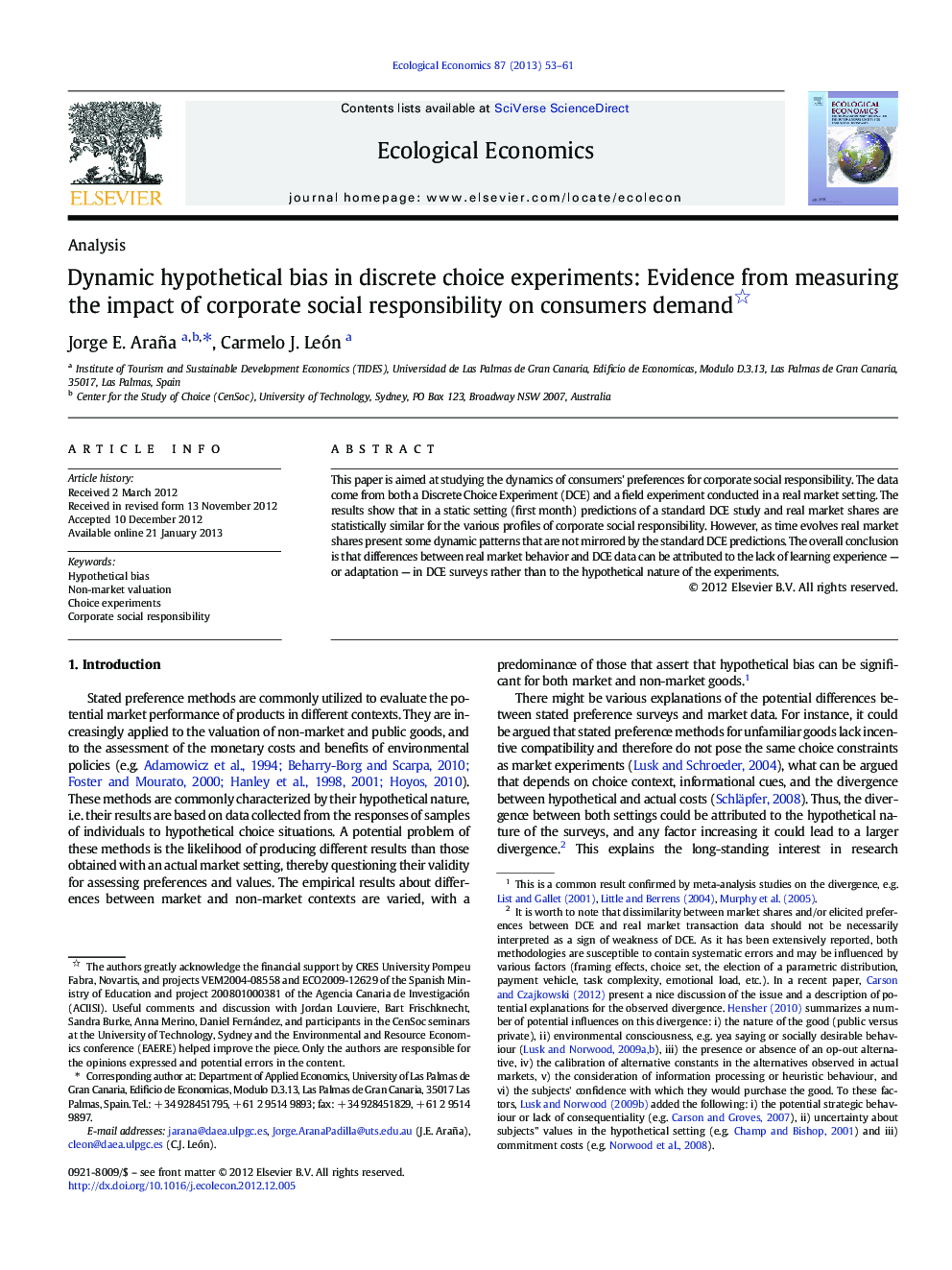| Article ID | Journal | Published Year | Pages | File Type |
|---|---|---|---|---|
| 5049997 | Ecological Economics | 2013 | 9 Pages |
This paper is aimed at studying the dynamics of consumers' preferences for corporate social responsibility. The data come from both a Discrete Choice Experiment (DCE) and a field experiment conducted in a real market setting. The results show that in a static setting (first month) predictions of a standard DCE study and real market shares are statistically similar for the various profiles of corporate social responsibility. However, as time evolves real market shares present some dynamic patterns that are not mirrored by the standard DCE predictions. The overall conclusion is that differences between real market behavior and DCE data can be attributed to the lack of learning experience - or adaptation - in DCE surveys rather than to the hypothetical nature of the experiments.
⺠There is a premium for products offering environmentally and socially responsible actions. ⺠Predicted market shares from a discrete choice experiment are compared with real market shares in a field experiment. ⺠Dynamic effects are studied with data collected at different points in time. ⺠Results show that discrete choice experiment predictions for initial periods are very accurate. ⺠There are different dynamics of preferences and preference adaptation in field and discrete choice experiments.
